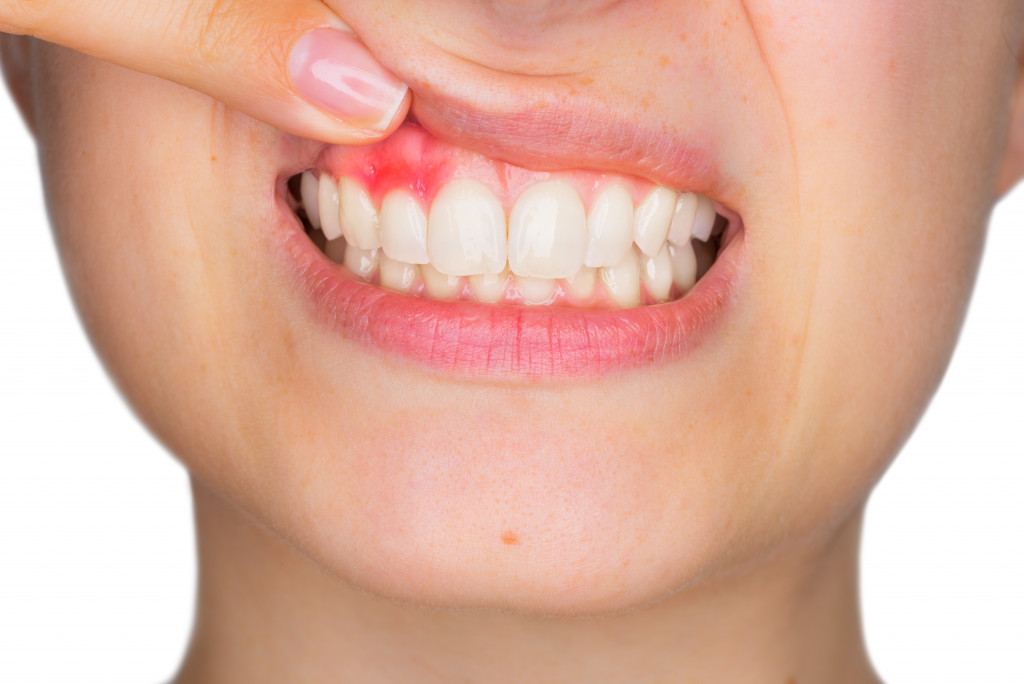When it comes to our health, we often think first of our physical well-being. We exercise regularly, eat a balanced diet, and get enough sleep. But our oral health is just as important as the rest of our health, yet it is often overlooked. Taking care of our teeth and gums is essential to maintaining good overall health—and yet, according to the National Institute of Dental and Craniofacial Research, nearly one in four Americans aged 18-64 have untreated tooth decay.
Did you know that oral health is directly linked to overall health? It’s true! That’s why it’s so important to be aware of the signs of poor oral health and take action to improve your dental hygiene. Keep reading to learn more about the symptoms of poor oral health and how they can impact your overall health negatively.
Bad Breath
One of the most common and noticeable signs of poor oral health is bad breath. If you have bad breath, called halitosis, it could be a sign of gum disease. If you have gum disease, the gums around your teeth are infected. This can damage the soft tissue and bone that support your teeth, which can eventually cause them to fall out. The sticky film of food debris, bacteria, and saliva, known as plaque, causes gum disease.
Plaque forms on your teeth at the gum line can only be removed with proper brushing and flossing techniques. If plaque isn’t removed, it will transform into tartar. This harder material can only be eliminated by a professional cleaning. If gum disease is left untreated, it can lead to tooth loss. In addition to causing bad breath, gum disease has also been linked to other severe health conditions such as diabetes, heart disease, and stroke.
Tooth Decay
Tooth decay is another common sign of poor oral health. Tooth decay occurs when plaque buildup creates holes in your teeth. Tooth decay can cause pain, sensitivity, and tooth loss if left untreated. You may be surprised to learn that tooth decay isn’t just a problem for kids—it’s actually the most common chronic condition among adults in the United States! In fact, nearly one in four adults has untreated tooth decay. Tooth decay can also lead to serious health problems such as infection, abscesses, and even heart disease. This condition can lead to tooth loss, which can lead to eating and speaking problems. If this is the case, your dentist will recommend the best tooth replacement solution to help you regain your quality of life.
Gum Swelling or Redness

Gum swelling or redness is another sign of something wrong with your oral health. Gum swelling or redness can be a sign of gingivitis, an early stage of gum disease. Gingivitis is caused by plaque buildup on your teeth near the gum line. If gingivitis is left untreated, it can progress into periodontitis, a more serious form of gum disease that can destroy the bones and soft tissue that support your teeth. In addition to causing gum swelling or redness, gingivitis can also cause bleeding gums, receding gums, and bad breath.
How to Maintain Good Oral Hygiene
Oral health is essential to overall health—so let’s take a closer look at how we can maintain good oral hygiene.
- Brushing Twice Daily: Brushing your teeth twice daily is the foundation of good oral hygiene. Be sure to use fluoride toothpaste—fluoride helps prevent tooth decay—and brush for two minutes at a time. If you can brush after every meal, that’s even better!
- Flossing Daily: In addition to brushing, you also need to floss daily to remove food particles and plaque from between your teeth and along your gum line.
- Rinse with an Anti-Bacterial Mouthwash: Rinsing with an anti-bacterial mouthwash can help reduce plaque and prevent gum disease.
- Eat a Balanced Diet: Eating a diet rich in fruits, vegetables, and whole grains helps keep teeth clean and gums healthy. Avoid sugary and starchy foods that can lead to tooth decay. See
- Your Dentist Regularly: Finally, be sure to see your dentist for regular checkups and cleanings at least twice a year. They will be able to spot any problems early on and help you keep your mouth healthy.
The bottom line
If you are experiencing any of the signs of poor oral health listed above, it’s important to take action right away! These signs should not be ignored because they could be indicative of more serious underlying dental problems. Talk to your dentist about what you can do to improve your oral hygiene habits, and make an appointment for professional cleaning if necessary. Taking care of your oral health will not only improve your dental health but your overall health as well!

